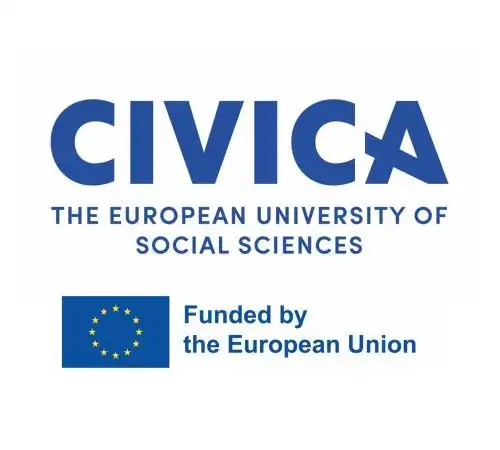Home>Professor Jan Rovny at the European University Institute to Discuss Ethnic Minorities

06.02.2025
Professor Jan Rovny at the European University Institute to Discuss Ethnic Minorities
Jan Rovny, a professor of political science at Sciences Po Centre for European Studies and Comparative Politics (CEE), spent 6 days at the European University Institute (Florence, Italy), thanks to our European alliance, CIVICA, and its faculty short visits programme. This stay was the perfect opportunity to discuss his research projects and to present his newest book, Ethnic Minorities, Political Competition, and Democracy (Oxford University Press).
Find below a video interview produced by Sciences Po on how "Ethnic minorities can be a positive asset for democracy", followed by a shorter version of an interview published by the EUI.
you gave a lecture at the EUI examining the relationship between ethnic minorities and democracy. Can you delve deeper into how different aspects of democracy, such as liberal democracy or social rights, resonate uniquely with various minority groups?
The core argument of the talk, which stems out of my book, is that ethnic minorities have a general interest in liberal democratic arrangements while they're in a democracy.
In a democracy, ethnic politics, contrary to expectations, are actually going to potentially be a force for maintaining democracy, which I've studied in Eastern Europe. I've demonstrated how this has been quite important in a number of countries during democratic transition in the 1990s, but also during recent episodes of democratic backsliding when some of the minority elites and parties have attempted in various ways to slow it down.
This is based on the idea that, conditionally, ethnic minorities seek to protect themselves through counter-majoritarian aspects of democracy, particularly through the protection of civil rights and liberties, which is a non-majoritarian component of democracy. Simultaneously, they're not necessarily so sure about the utility of majoritarian components of democracy, such as electoral democracy or direct popular democracy.
My current research is trying to engage with this and see whether ethnic minorities are interested in some components of democracy, being counter-majoritarianism more so than others, such as electoral democracy. That's what the preliminary results show.
Could you provide examples of how these minorities try to protect themselves from majoritarian rule?
My book delves into the cases of Hungarians in Slovakia or ethnic Russians in Estonia.
One example is when quite a liberal ethnic minority party in Slovakia joined in a very difficult coalition with a populist illiberal party in 2016, which was to some degree seen as a bit of a betrayal by their voters because they went into this coalition with a prime minister who was not particularly minority-friendly or liberal democracy-friendly. But in that government, they very much sought to control some of the key portfolios that would protect them as a minority. They were always interested in questions of usage of language, language education, and signage in national languages.
They were also interested in the ministry of regional development, but most importantly, they actually did manage to obtain the position of the minister of justice. The minister of justice was able to put into place a set of new laws that contained aspects like transparency of government contracts that importantly constrained some of the corrupt and anti-democratic practices that the government was involved in.
In Estonia there was a similar situation, where a party that was not explicitly an ethnic minority party ―but that has historically been supported and has itself supported ethnic minorities― also went into a difficult coalition with a radical right party. That party was not happy with it and the Russian representatives didn't like it.
Some of them deliberately didn't take up their seats in parliament in order not to vote for that coalition. I've interviewed specific individuals who preferred to stay in the city hall and work in local politics, even though they had a seat in the parliament. It was a symbolic rejection: “I will not vote for this coalition, but I will not prevent my party from doing it.”
There was a very instrumental aim that the party had in mind, and that was to protect Russian education. They said, “we will go dance with the devil, but one red line is Russian schools will remain.” They saw that if they weren’t going in the coalition, the majority influenced by the radical right party will undermine this fundamental need for them and their community. Throughout that government, they have managed to protect Russian schooling.
How does the CIVICA alliance contribute to your research?
It made this possible. This was a unique opportunity to stay here for a week, which gave me much more flexibility to meet more people, get more feedback, and also give some comments to students. Without CIVICA this would have either not happened or would have been a lot shorter.

Cover image caption: Jan Rovny during a CIVICA faculty short visit at the EUI in Florence, Italy. January 2025. (credits: EUI / CIVICA)
